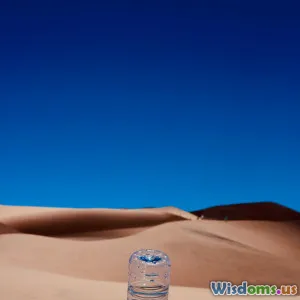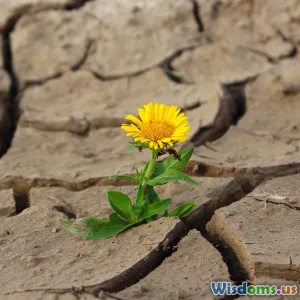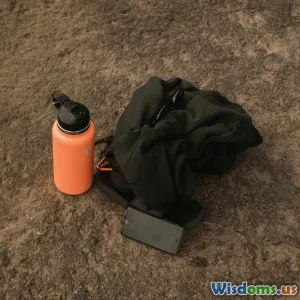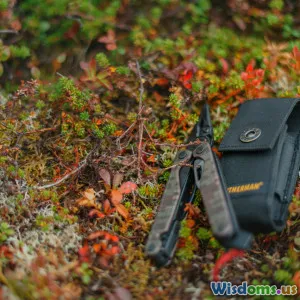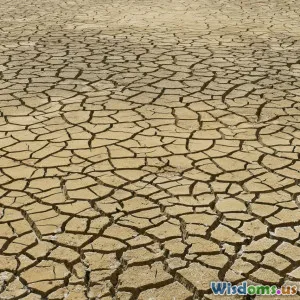
What Happens If You Drink Saltwater in the Desert
7 min read Discover the effects of drinking saltwater in the desert and why it worsens dehydration and health risks. (0 Reviews)
What Happens If You Drink Saltwater in the Desert
In the stark and unforgiving environment of a desert, where water scarcity is one of the biggest threats to survival, the instinct to quench thirst with any available liquid can be overwhelming. Saltwater, often seen as a potential resource, might seem appealing as a last resort. But what really happens if you drink saltwater in the desert? This article dives into the physiology, chemistry, and consequences of saltwater consumption in arid climates to reveal why this seemingly obvious choice can be dangerous, even life-threatening.
Understanding Saltwater and Its Composition
Saltwater primarily consists of water and dissolved salts, the most abundant being sodium chloride (NaCl). On average, seawater contains about 3.5% salt by weight, much higher than what the human body’s fluids contain — typically about 0.9% salt concentration. This difference is critical: the human body's cells rely on a delicate salt-water balance for essential functions.
The Role of Osmosis and Electrolytes
Cells maintain balance through osmosis — water moving across membranes to equalize salt concentrations. When salt concentrations outside cells are higher than inside (a hypertonic environment), water rushes out of cells in an attempt to equalize the concentration gradient, causing cells to shrink and dehydrate. This process is central to understanding the impacts of drinking saltwater.
Physiological Effects of Drinking Saltwater
Accelerated Dehydration
Contrary to intuition, drinking saltwater accelerates dehydration rather than relieving thirst. How does this occur?
-
Osmotic Imbalance: When someone drinks saltwater, the high salt content in the gut causes water in the bloodstream to be drawn into the digestive tract to dilute the salt.
-
Increased Urination: The kidneys work harder to excrete excess salt by producing more urine. However, because saltwater introduces more salt than the body can safely remove, this results in loss of more water than gained.
A classic example is stranded sailors or desert travelers who drink seawater, leading to a fatal cycle of escalating dehydration.
Symptoms and Health Risks
Common symptoms after consuming saltwater include:
- Intense thirst that worsens
- Muscle cramps and weakness
- Dizziness and confusion
- Headaches
- Elevated heart rate
- Nausea and vomiting
In extreme cases, hypernatremia can occur, where blood sodium levels spike dangerously. This condition can lead to seizures, brain swelling, coma, and even death.
Real-World Cases and Data
Historically, saltwater ingestion has contributed to numerous fatalities among shipwreck survivors and desert wanderers. An often-cited example is the ill-fated Donner Party during the 19th-century American westward expansion. Reports suggest members avoided drinking contaminated or salty water precisely because it worsened their health.
Scientific studies also confirm that consumption of saltwater leads to increased urine output and declines in total body water. In one study involving controlled saltwater ingestion, subjects rapidly experienced dehydration symptoms and fluid imbalances despite an initial feeling of relief from thirst.
Misconceptions About Drinking Saltwater
Myth: Saltwater Will Rehydrate You
This myth persists partly due to misconceptions that more water, even if salty, is better than no water. The reality is that only freshwater or properly desalinated water can rehydrate cellular systems effectively.
Myth: Small Amounts Are Safe
Even small quantities of saltwater can strain kidney function, especially in already dehydrated states, common in desert survivors. This makes medical advice unequivocal: avoid saltwater consumption.
Safer Hydration Strategies in Desert Environments
Collecting Moisture
Instead of saltwater, look for alternative hydration methods:
- Dew and Night Moisture: Condensation can be collected on surfaces early in the morning.
- Transpiration Bags: Placing a plastic bag over a leafy branch can trap water vapor.
- Cactus and Succulents: Some succulents provide usable water if properly processed, though caution is advised as not all are safe.
Carrying Emergency Water Purification Tools
Desalination techniques such as solar stills or portable filters can transform brackish or saline waters into safe drinking water. Many survival kits now include compact desalination pouches.
Managing Physical Activity
Reducing exertion decreases water loss through sweat, helping conserve hydration levels while waiting for rescue or replenishing supplies.
Conclusion
Drinking saltwater in the desert environment is a dangerous decision that worsens dehydration and imposes severe health risks due to electrolyte imbalances and the biological principle of osmosis. Real-world survival experience and scientific data confirm that saltwater intake accelerates dehydration and potentially fatal complications.
For anyone venturing into arid lands or facing water scarcity, understanding this hazard is critical. Instead of consuming saltwater, focus on sourcing or collecting freshwater, employing survival hydration methods, and avoiding unnecessary water loss by regulating activity.
Knowledge and preparation save lives; knowing precisely why saltwater should not be consumed in the desert empowers better decisions and enhances survival chances in extreme conditions.
References:
- Lemon, P.W., "Role of salt in water ingestion and rehydration," Medicine & Science in Sports & Exercise (1998).
- NIH, Medline Plus, "Hypernatremia: Causes and Symptoms," (2021).
- El-Saadani M., "Physiology of salt water intoxication," Journal of Desert Studies (2014).
- National Geographic, "Survival Techniques in Desert Climates," (2020).
Rate the Post
User Reviews
Popular Posts










